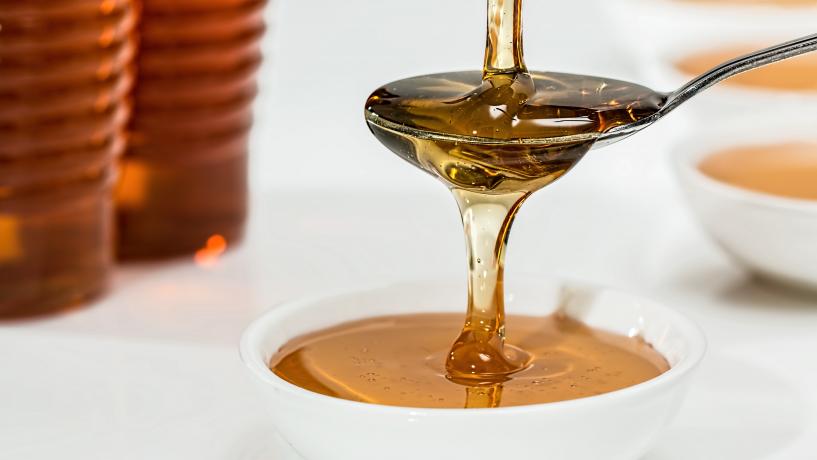
Do you know what’s really in your meal? Ever thought this just doesn’t seem like the real thing? Well, you were most likely right! It’s called food fraud, and this lucrative industry is raking in billions each year from selling fake or misleading food products to consumers.
What is food fraud?
Food fraud is the deliberate misrepresentation of food products for the purpose of economic gain. This can be done in a number of ways, including:
- mislabelling (selling a low-quality product as a premium product)
- adulterating (cutting premium products with less expensive ingredients)
- making false claims about a product's country of origin
- making false claims about how the product was made
- misrepresenting the product's nutritional qualities
- misrepresenting the weight of the product
Food fraud comes in many forms, but the end goal is ultimately the same — to trick the consumer into paying a higher price for a product that is not what it claims to be.
Why is food fraud a problem?
Costing the global food industry around $50 billion each year, food fraud is a growing economic and public health problem for a number of reasons. Not only is it deceptive and damaging to consumer trust, but it can also introduce serious health risks that the consumer has no way to defend against.
Adulterating a product can introduce an allergen that should not be in the product, one that the consumer assumes is not in the product. This could be lethal for someone with a food allergy — but allergens aren't the only health risk.
Few will forget the 2008 Chinese tainted-milk scandal, in which the toxic chemical melamine was added to infant formula to boost protein levels in order to pass nutritional testing. The level of melamine in the infant formula was found to be as high as 2,560 mg/kg — roughly 4,000 times the tolerable daily intake set by the U.S. Food and Drug Administration.
A total of 22 companies, including state-owned dairy company Yili, were found to be involved in the scandal that claimed the lives of six babies and sickened more than 300,000 with kidney stones and kidney damage. Consumer trust in Chinese infant formula has never recovered.
Beyond the immediate health risks to the public, food fraud also makes it more difficult for honest food producers and retailers to compete. As responsible companies get priced out of the market by fraudulent yet low-cost products, consumers find themselves with fewer and fewer buying options.
Current food safety management systems are not always designed for fraud detection, but food safety guidelines — and savvy Australian consumers — are demanding transparency and traceability from farm to fork.
How common is food fraud?
Speaking to ABC, Forensic Chemist Professor John Watling from the University of Western Australia estimated that approximately 20 percent of what goes into the average supermarket trolley is mislabelled or adulterated. Some food supply chain experts put that number much higher, and estimate that 100 percent of people have been duped by fraudulent food products or misleading labelling at least once.
Overwhelming evidence indicates that food fraud is a growing trend. Globalisation and complex supply chains are creating unprecedented opportunities — and rewards — for creative fraudsters whose methods seem to constantly evolve to evade detection. Today, even the most basic food products can involve thousands of suppliers around the world.
It's no wonder that food fraud in Australia, and around the world, is increasing and high-profile scandals continue to hit mainstream and social media. For example:
- the European horse meat scandal
- the Mexican tomatoes scandal
- the fake kosher cheese scandal
- the fake honey scandal
- lookalike Australian wines
What is the responsibility of the consumer?
We've all been there. We're in the grocery store to pick up some everyday staples and we take the cheapest version of what we're looking for. After all, why not — why pay more for the same product?
It may seem like the obvious choice — but it's also contributing to a problem that affects us all and endangers some of the most vulnerable people in society. By not asking questions, we make it harder for honest companies to survive and reward the unscrupulous with our hard-earned consumer dollars.
While it is not the responsibility of the consumer to buy only the most expensive products in the grocery aisle, it is important to ask questions. Remember that you have the power to influence the market with your words and your wallet. If you think that something is too good to be true, you can report it to the Australian Competition & Consumer Commission (ACCC).
Beware these everyday food staples
According to a report by the EU Parliament, everyday staples such as olive oil, fish, honey and fruit juice are often “subject to fraudulent activities”.
Honey has often been found to have traces of added sweeteners, antibiotics and/or chemicals; lower-quality fish is being sold as salmon, and fruit juices have been found to contain rotten fruit and toxic mould.
The top 10 products the EU Parliament found most at risk of food fraud were:
- olive oil
- fish
- organic foods
- milk
- grains
- honey and maple syrup
- coffee and tea
- spices (e.g. saffron and chilli powder)
- wine
- fruit juice
Want more information?
To find more information or to assess how vulnerable your business may be to food fraud, click here.





